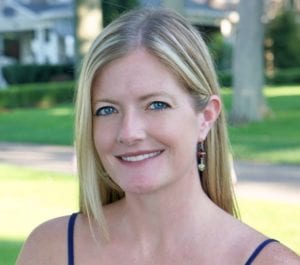March 9, 2020 | Curated by Maureen McDole
Poems by Janet A. Hopkins

The Vole
It was well covered and alone,
in a frosted weald in winter loam,
a tiny creature curled up tight,
dreaming dreams that winter night.
It dreamt of things I could not know,
tramping there on crusted snow.
Its hidden form lay still and cool,
a death of sorts in winter’s rule.
I thought of how and now alone,
in frozen lands I had to roam.
A midland creature born a thief,
a boy of sorrow man of grief.
I dreamt of things I did not know,
tramping there on crusted snow.
My hidden heart lay still and cold,
a death of sorts in winter’s hold.
The night went on ere dawn did break,
the creature slept, the man awake.
The sun’s slant rays did warm the scene,
but did not warm the cold within.
Two lone creatures, joined on earth,
neither warmed by sun or hearth.
One to wander, one to sleep,
one to dream and one to weep.
Skull Valley
That winter-edged morning
we walked the power line road
up to Moosley Spring.
Coats on, then off, as we
warmed to the steep ascent.
Overhead, power lines buzzed.
The humming strings tuned memories
of other coffee-heated,
glove-warmed, frigid mornings
on this rock-ribbed trace.
We climbed to a ridge and sat
at the edge of nowhere,
high above the autumn-painted
vale, waiting as our dog and
the wilderness settled at our feet.
We spoke quietly of the people
we had known. The managers
of a ranch over there – the owners
of a house shimmering on a distant
mountain slope across the valley.
As the crumbling granite outcrop
cooled our backs, three black does
wandered in upwind. Suddenly,
heads up and tails flicking, they
melted back into the scrub.
Overhead, a contrail cut
the cold-frosted sky
with a silver blade,
Spilling frozen,
breathless air upon the earth.
We heard the bawling
of a distant calf and stood,
startled by the creature’s misery.
We turned, too chilled to stay,
and walked in silence to the car.
Winter’s Dream
Green flies hang and eddy
to the whisper of a breeze.
Tiny weightless vassals
of the coming winter freeze.
Buzzing in an ancient tongue,
they list and name us one by one.
Drawing portraits in midair,
in beams of shimmering glare.
Tall grass a’nod and swaying
to a passing cooling breeze.
Heads held low and somber
By their heavy drying seed.
Flower spikes grown weary
of the brittle, glittering sun
move stiffly as they shuffle
to the killing frost of dawn.
And I awash in pine and sun,
and rocking on the breeze,
dream a winter’s dream
on the waves of an autumn sea.
Flat Tire
By Mary Chris Bailey

Driving across the flat wasteland of the Midwest, our old VW square back sedan started to shimmy and shake. A distinctive thwack, slap emanated from the left wheel well as an attached four-by-six U-Haul trailer, swayed and crossed the yellow line. The trailer held everything we either liked or needed enough to bring with us on our move halfway across the country.
My husband, Todd, gripped the wheel, pumped the brakes and coaxed the car and trailer to the shoulder. Both of which remained upright as we slid to a stop. A smile played at the corners of his mouth. I patted his shoulder.
“Whew, good job.”
I glanced into the back. Billy, three, and Sam, one blinked sleep from their eyes. The car listed to the passenger’s side, causing the boys and my dog to end up in a tangled clump next to the door.
“It’s okay. Daddy decided it was time for a little stop,” I said.
Todd got out to survey the situation.
“Flat tire.”
“Guess you’re gonna have to change it.”
We drug stuff from the rear hatch to get at the spare. The spare tire was flat too.
There were no pay phones in sight. Leaning against the car, wondering what now, I spotted a gas station approximately a half-mile away on the other side of a field. Todd, to this day, maintains it was less than a quarter-mile. His memory has always been faulty.
Pointing, I said, “Look.”
“Guess one of us will have to walk over there and see if they can help,” Todd said.
“You go, and I’ll stay here with the boys.”
“Not a good idea. Somebody could plow into the back of the trailer crushing the car. I don’t want you and the boys in there just in case. It’s too dangerous.”
My eyebrows snapped towards my hairline, “You want me to take the boys?”
“Yep, that’s the safe thing.”
“If you say so.”
Walking to the back door, I opened it wide enough for Billy and Sam to get out before the edge stuck in the dirt. The smell of burnt rubber hung in the air.
“Come on, guys, we’re going for a little hike.”
I slung Sam on my hip and took Billy’s hand. Todd climbed back into the front seat and waved.
We made it about fifteen feet before we ran into the fence enclosing the field between the gas station and us. It was metal woven into small squares and stood at the level of my armpits. No way to get through, the only choice was over.
As kids, my cousin Chrissy and I used to jump her neighbor’s fence and taunt the bull who lived there to give chase. He was always glad to oblige. Remembering those days, I scanned the field for any large bovines, finding none I lifted Billy over the fence.
“Just stand there, and I’m going pass Sam over. Make sure he doesn’t fall.”
Billy popped his thumb in his mouth and waited. He hadn’t sucked his thumb in over a year. I dangled Sam over the fence as far as I could reach. Billy grabbed Sam’s legs, and I let go. They tumbled to the ground, whimpered a little, but didn’t cry.
“Billy, take your brother’s hand, and don’t let go.”
Now it was my turn, a much harder proposition. My toes barely fit in the metal squares. The fence swayed as I climbed, and snagged my jeans by the hem. With my right leg planted on the ground, my left leg attached to the fence, I looked like a figure skater in a perfect camel position. Hopping back a few steps, my jeans tore free.
I hoisted Sam back up onto my hip, and the three of us stumbled across the lumpy field but somehow managed to stay upright until we reached the other side.
Poems by Kate Postle

Mistaken
when you sent my mother to the playground the morning you tried to kill yourself the sound of her swing-chains in the distance could have been mistaken for songbirds mistaken for a rusty gate left unhinged in a storm mistaken for the memory of your grandfather’s un-tuned violin mistaken for the lambs in the barn down the country block from where you were raised—the farm just close enough that you could hear them cry in the still afternoon yet far enough away that the sounds of their slaughter could easily have been mistaken for something else mistaken for an branch arm-wrestling the wind mistaken for the sheep farmer’s daughter pumping out a pulse on the homemade swing hanging from the same tree
Ode to My Unfriendly Neighbor
—Mackenbach, Germany
In a different country he would be
just another old man with a gun,
surveying his acreage,
sighting up crows for target practice.
But the quiet equality of socialism
has disarmed and penned him
to this third story balcony
where he hangs birdfeeders that swing
like lanterns from gravediggers’ poles.
He is of the age now where, from a distance,
it is difficult to tell him from a woman,
his breasts low and flat behind the flap of overalls.
He prefers the starlings, punctual as Germans
to the seed that falls to the grass below,
how they inflate upwards
and suck back together in the sky
like a giant, black lung. Sometimes
you are the parchment, and sometimes
you are the print—the checkmarks
of sparrows on the laundry list of dusk.
And sometimes you find each other
standing on the porch in the same moment,
both starring down the cross-armed night.
Three Carrotwoods
Non-native, as most of us Floridians are,
I still decide you are not welcome here.
I try to send you back to where you came from,
pay an arborist to climb and slay you
like mythical dragons,
only to be told if he drills into your stumps
and pours down herbicides to stop
your trio of armored hearts,
the stone wall in the backyard will crumble.
Your brotherhood of roots arm wrestling beneath it
are the only things keeping it from rubble.
I glower at you from my pool raft,
purposely bump up against you
with the scarred mug of the lawnmower.
And you keep coming up, plucky and glossy
as freshly-minted dollar bills, the currency
of the apocalypse. In the end,
it will be cockroaches, Twinkies, and you.
Just die already.
I want to believe that, at each center of your rings,
you are as worrisome creatures as I,
but I know that each time I am knocked down
that you take the better punch. So, I must admire
your resilience, how you make seeds so tasty,
you can get a free ride for miles around—
even if it is in the colon of a mockingbird—
then pop up radiant as phosphorescent algae
caught in a wave of perfect moonlight.
With the gas station in sight, we repeated the process. Scarier this time, the road was within several feet of the fence. I crouched down until I was at eye level with Billy.
“I’m going to lift you over the fence first, and you’ll catch Sam. Just like last time. See the road right there. You can’t move. You can’t let Sam move. The road is dangerous.”
“Otay, Mommy,” the words by muted his thumb.
Once the boys were on the other side, I scrambled over in about thirty seconds flat. Now, there was a huge rip in my jeans. Beneath the tear, my right inner thigh oozed blood.
Scanning the road for oncoming traffic, I limped across to the gas station. Inside, a guy with a ball cap pushed back on his head, the mesh and cloth type like farmers wear, watched a small black and white TV. A three-year-old calendar dated 1975, with a scantily clad young woman hung over his shoulder. He spun around feet, plopping onto the floor when he spotted us.
“Where’d you come from?”
I pointed out the window to our car and trailer off in the distance.
“Flat tire, bad spare, can you help?” I said.
“Well, I’ll be. What kinda car is it? I’ll look up the size. Shouldn’t be a problem.”
Forty-five minutes later, we pulled up behind the trailer. I jumped out of the truck and helped the boys climb down. Rick, we were on a first-name basis by now, went to the truck bed to get the tire. Glancing in our car window, I heard what sounded like the droning of bees punctuated by an occasional snort. Todd was reclined in the driver’s seat, eyes closed, and a puddle of drool sliding down his left cheek.
I wondered if gullibility was genetic.


